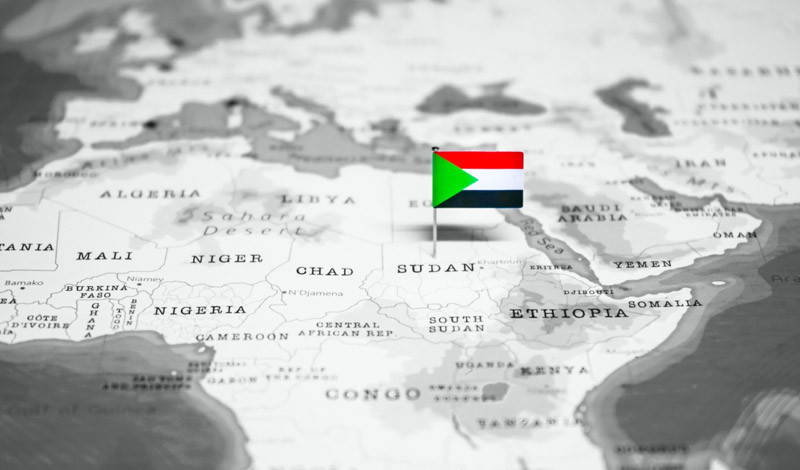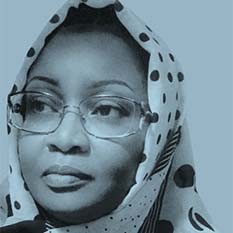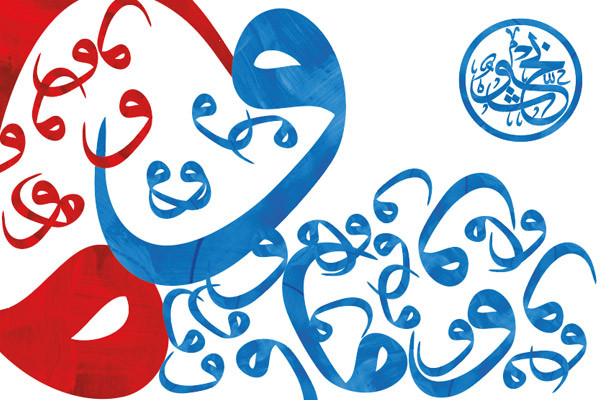Sudan’s Role within the Red Sea bordering countries
The security of the Red Sea is one of the most important direct security centres for the national security of Sudan. The Red Sea is the conduit between Sudan and the outside world, through the open seas in the Indian and Atlantic Oceans and across the Mediterranean and the Suez Canal, which places particular importance on the security of Sudan and the Arab countries bordering the Red Sea. The disruption of navigation in the Red Sea, for example, means that all world trade between Sudan and the outside world has stopped. The strategic and pivotal importance of the Red Sea is one of the most important issues of not only Sudan’s national security, but also Arab national security as a whole.

- by Dr. Sumaya Adam Eisa ,
- Tuesday, 29th October, 2019
One of Sudan’s natural gates on the Red Sea is Port Sudan, which is one of the most efficient ports in Africa. The Port Sudan, which opened in 1909 and which has a capacity of 1.3 million containers per year, is not only the main port of Sudan, but also considered an important seaport for some of the neighbouring countries closed off from the sea, such as Ethiopia, Chad and South Sudan.2
However, there are many shortcomings that reduce its efficiency, such as congestion and delays in the movement of freight, and capacity constraints. As a result of these shortcomings, capacity—of Port Sudan, in particular—is reduced to 80% at best.56 There is an urgent need to improve the efficiency of Port Sudan and other ports, such as the port of Suakin on the Red Sea, to aid in the revival of the country and the speed of investment recovery. President Bashir and Turkish President Recep Tayyip Erdogan signed a number of agreements in 2017, including Turkey’s reconstruction of Suakin.3 However, observers saw the $4 billion deal between Turkey, Qatar and Sudan to develop Suakin as a highly strategic and politically sensitive move, as it could allow Turkey to establish a military presence on the Red Sea. At least for the time being, these projects appear to have stalled. A $2.4 billion contract to develop and operate the port, given to the Philippine company ICTSI to manage and operate the southern container terminal at Port Sudan for 20 years, was also suspended. Opponents to the deal believe that the company is a front for Dubai Ports World.58 It is important to raise the efficiency of Port Sudan to raise the level and rates of Sudanese exports of agricultural and animal products.
There are a number of regional and international initiatives for the Red Sea in which Sudan has been actively involved, including but not limited to:
- The American Peace Institute initiative, to study and anticipate the dangers of violent conflict and explore opportunities in order to address those challenges;4
- The new Saudi initiative for ‘Arab and African coastal states of the Red Sea and Gulf of Aden’, for coordination and cooperation in political, economic, security, cultural and environmental issues, set up in December 2018, comprised seven countries: Saudi Arabia, Egypt, Djibouti, Somalia, Sudan, Yemen and Jordan;5
- The Egyptian Initiative, set up in December 2017, was created to establish a framework for cooperation between Arab and African countries bordering the Red Sea to contend with foreign interests alongside the Red Sea countries,6
- Blue carbon policy and capacity building to simplify the policies of the region. The Blue Carbon Policy Assessment in the Red Sea and Gulf of Aden is a regional initiative in collaboration with the United Nations Environment Programme (UNEP) to formulate the Blue Carbon Policy and to build capacity to streamline these policies in the region. The regional perspective is based on the scope and environmental features of the region, and the regional approach to the management of major Red Sea and Gulf of Aden habitats, in accordance with the efforts of the Regional Organization for the Conservation of the Environment of the Red Sea & Gulf of Aden (PERSGA) and its member states. The study was conducted in eight countries: Yemen, Abu Dhabi, Somalia, Sudan, Saudi Arabia, Jordan, Egypt and Djibouti;7
- PERSGA;
- PERSGA (the Jeddah Convention).
It is believed that, the ports of Sudan will undergo a tremendous development with the new era in Sudan. Tis a challenging area for the new governments.

Dr. Sumaya Adam Eisa
Researcher, GLOBAL AFFAIRS DEPARTMENT (FORMER)
Read More
Areas of Expertise
- Writing
- Research
- Editing
- Translation
Education
- PhD, Fictional Genre Translaion
- M. A. in Translation & Interpretation, American University of Sharjah, UAE
- B. Sc. In Rural Economics, University of Khartoum, Sudan
Bio
Skilled writer dedicated to work to high standards with extreme commitment to meet deadlines and assure output accuracy. A dynamic experienced translator, translated for the FAO and other regional and international organizations. The Sole Author of Fisheries and Marine Science Dictionary, English-Arabic, the first of its kind in the Arab world. CEO and Founder of TBLT, Khartoum, the Translation Firm which translated the Legislation of the State of Qatar. Has great experience in the fields of scientific research, business and technical writing and translation. In addition to translation of hundreds of economic, administrative and scientific reports and studies. Volunteered in women and other non-governmental associations.

